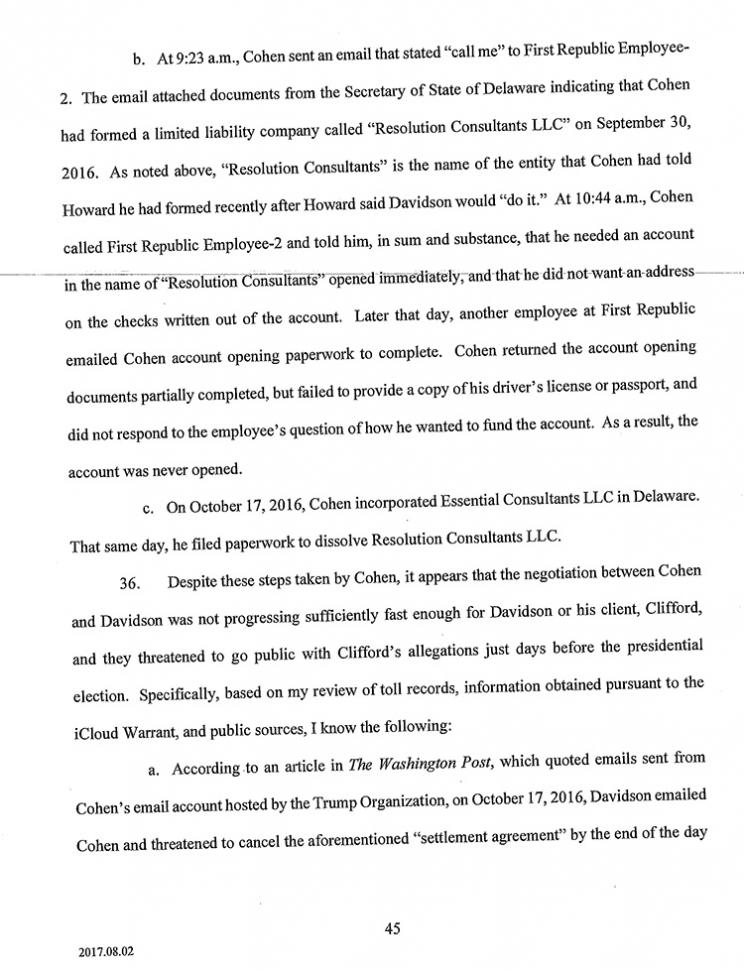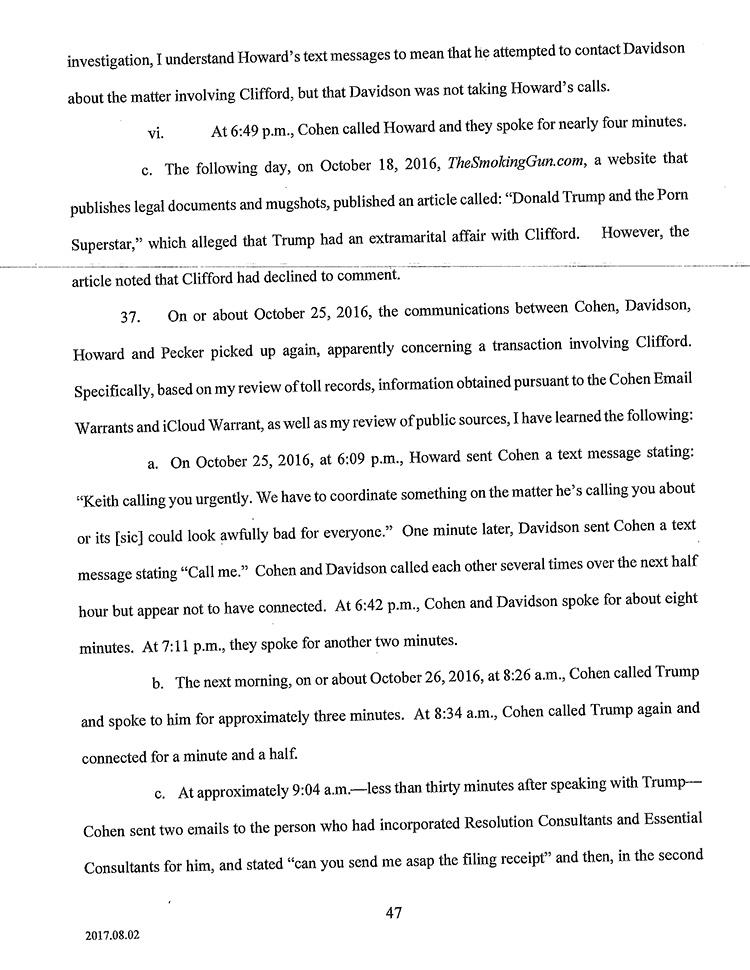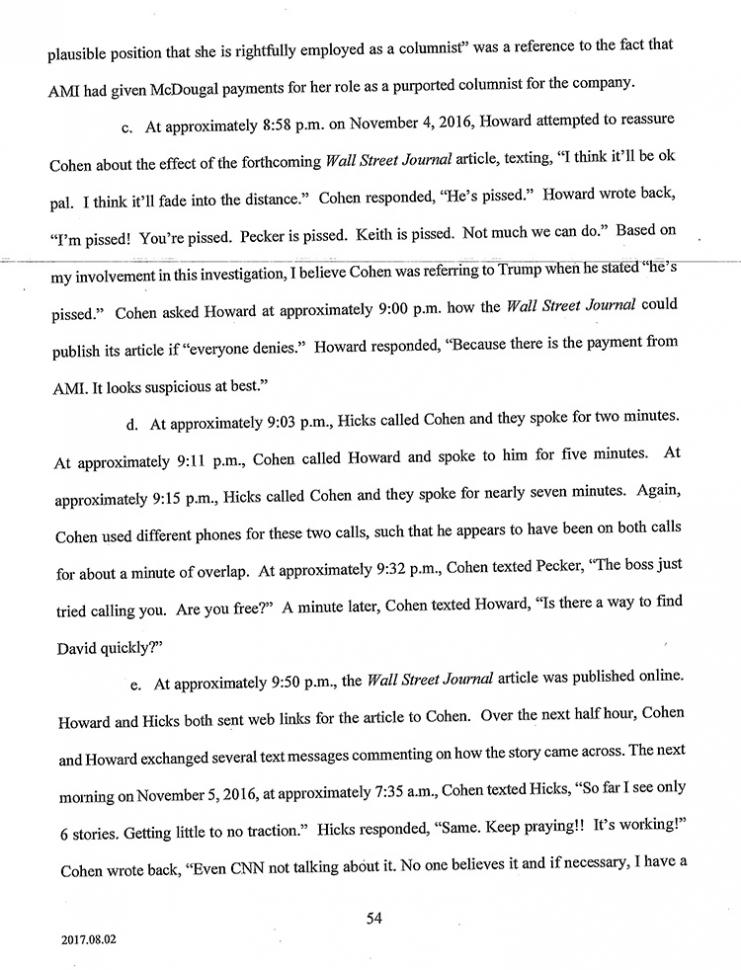Team Trump Panicked Over Stormy Claims
Search warrants detail effort to muzzle porn star
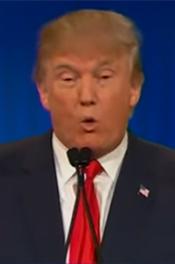
View Document
Cohen Unsealed
-
Cohen Unsealed
-
Cohen Unsealed
-
Cohen Unsealed
-
Cohen Unsealed
-
Cohen Unsealed
-
Cohen Unsealed
-
Cohen Unsealed
-
Cohen Unsealed
-
Cohen Unsealed
-
Cohen Unsealed
-
Cohen Unsealed
-
Cohen Unsealed
-
Cohen Unsealed
-
Cohen Unsealed
-
Cohen Unsealed
-
Cohen Unsealed
-
Cohen Unsealed
-
Cohen Unsealed
-
Cohen Unsealed
-
Cohen Unsealed
JULY 18--In the days after the notorious “Access Hollywood” tape surfaced, Donald Trump, Hope Hicks, and Michael Cohen discussed “the need to prevent” porn star Stormy Daniels from going public with her account of an extramarital affair with the presidential candidate, according to court records 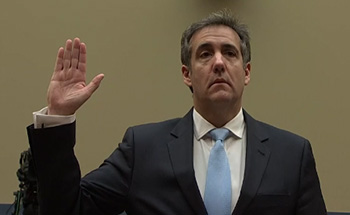 unsealed this morning.
unsealed this morning.
In a series of search warrant applications targeting Cohen, Trump’s former attorney, the FBI and federal prosecutors detail the frantic efforts to arrange a hush-money payment to Daniels (real name: Stephanie Clifford) in advance of the 2016 presidential election. Additionally, assorted Trump loyalists discussed how to justify a similar hush payment to Karen McDougal, a former Playboy model who claims to have had a months-long extramarital affair with Trump.
After The Wall Street Journal published a story about the McDougal payment days before the November 8 election, Cohen and Hicks were concerned about the story spreading to other media outlets. When that did not occur, Cohen texted Hicks, “So far I see only 6 stories. Getting little to no traction.” Hicks replied, “Same. Keep praying!! It’s working!”
The search warrant affidavit, which was sworn by an FBI agent, refers to a call placed by Hicks to Cohen on October 8, 2016, a day after the “Access Hollywood” tape was posted by The Washington Post. Sixteen seconds into the call, Trump joined the conversation. The three-way call was one of a flurry of calls, texts, and emails exchanged in the days after the video surfaced, leading investigators to  conclude that “at least some of these communications concerned the need to prevent Clifford from going public.”
conclude that “at least some of these communications concerned the need to prevent Clifford from going public.”
During testimony last month before a House committee, Hicks said she was “never present” when Trump and Cohen discussed Daniels, of whom she claimed to have had “no knowledge of” during the 2016 race. Hicks, who was the campaign press secretary, acknowledged that she heard Daniels may have been “shopping stories around.” Asked why she denied to reporters that Trump had any relationship with Daniels, Hicks said she was merely passing on responses provided to her by the candidate and Cohen.
In an FBI interview, the affidavit states, Hicks said that, “to the best of her recollection,” she “did not learn about Daniels’s allegations until early-November. The affidavit adds that Hicks was “not specifically asked about this three-way call” when previously questioned by the FBI.
In August 2018, four months after his home and office were raided by FBI agents, Cohen pleaded guilty to a pair of felony campaign finance violations related to the monies paid to Daniels and McDougal. In Cohen’s indictment, prosecutors alleged that the attorney “acted in coordination with and at the direction of” Trump, who was referred to as “Individual-1” in the charging document.
In seeking judicial permission to raid Cohen (as well as to access his emails and iCloud account), investigators noted that records they had already reviewed “make evident that Cohen communicated with members of the Trump campaign about his negotiation with Clifford’s attorney and the need to preclude Clifford from making a statement that would have reflected negatively on the candidate in advance of the forthcoming election.”
Along with the campaign finance counts, Cohen pleaded guilty to tax evasion and making false statements to Congress. Sentenced to three years in 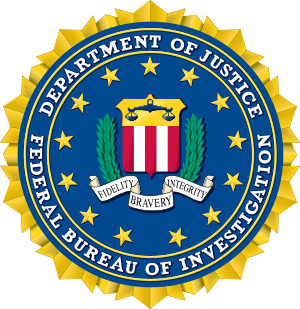 prison, Cohen is being held in the minimum security prison camp at the federal lockup in Otisville, New York, about 80 miles northwest of New York City.
prison, Cohen is being held in the minimum security prison camp at the federal lockup in Otisville, New York, about 80 miles northwest of New York City.
When Cohen, 52, pleaded guilty in August in U.S. District Court in Manhattan, he implicated Trump in the campaign finance scheme, saying that payments to Daniels and McDougal were made “in coordination and at the direction of a candidate for federal office” or “under direction of the same candidate.” At the plea hearing, a federal prosecutor said that Cohen acted “in coordination with a candidate or campaign for federal office for purposes of influencing the election.”
While the Cohen search warrants were released in March, a 20-page section in each of the accompanying FBI affidavits was redacted in its entirety. The blacked-out section was headlined “The Illegal Campaign Contribution Scheme.”
After federal prosecutors this week announced that their campaign-finance probe had ended--apparently without charges beyond the Cohen case--Judge William Pauley ordered the unsealing of the Cohen search warrants.
When prosecutors asked to keep some portions of the documents redacted, Pauley flatly refused. In an order, Pauley wrote that the “violations discussed in the Materials are a matter of national importance.” He added, “Now that the Government’s investigation into those violations has concluded, it is time that every American has an opportunity to scrutinize the Materials.” (20 pages)
















